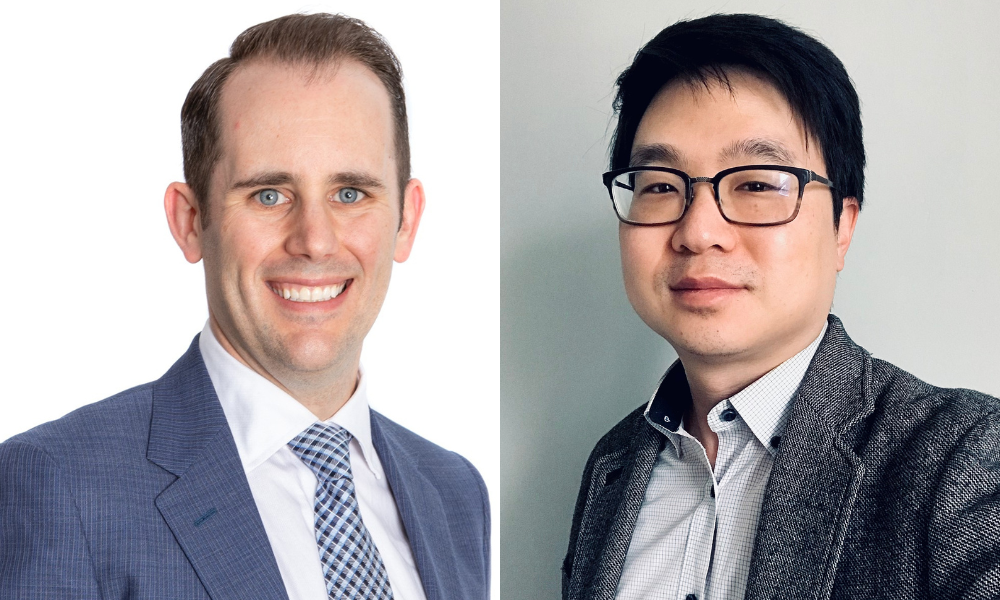
Group says the limits create 'two-tiered' adjudicative system for discrimination victims

Parkdale Community Legal Services is challenging caps on damages in the Canadian Human Rights Act, arguing they create a two-tiered adjudicative system by imposing an arbitrary compensation limit for members of equity-seeking groups discriminated against by federally regulated organizations.
The Canadian Human Right Act caps damages for pain and suffering and special compensation at $20,000 each. Parkdale Community Legal Services (PCLS) argues that the caps infringe on the Charter’s s. 15 guarantee of equality because they reinforce, perpetuate, and exacerbate disadvantages for those awarded damages under the Act.
The caps apply to federal organizations, which include the Government of Canada, airlines, banks, postal and courier services, radio and television broadcasting, telecommunications, trucking and railways, to name a few.
The Toronto-based community legal clinic argues the caps limit the recoverable pain-and-suffering compensation for victims of discrimination “far below” what is available for similar civil claims. This limit perpetuates the discriminatory treatment by under compensating complainants compared to victims of other types of tortious conduct.
The federal human rights regime is “the exclusive forum” for those seeking to assert a discrimination claim against a federally regulated entity. PCLS says the caps deny victims equal protection and treatment under the law because victims must use a forum that “significantly reduces monetary compensation.” This requirement also trivializes the harm of the discriminatory conduct by setting an “arbitrary limit” on special compensation awards, said the notice of application.
PCLS is asking for a declaration that the caps are inconsistent with the Charter and an order declaring them to be of no force and effect.
“Courts, and lawyers generally, like to refer to human-rights legislation as quasi-constitutional legislation, and it’s meant to protect fundamental rights in our society,” says Andrew Montague-Reinholdt, one of the lawyers for the PCLS. “It’s always struck me as bizarre that with one hand, we say that about human rights legislation, and yet in terms of the remedies that a complainant can seek, we limit it. We limit it in a way that we don’t do in commercial litigation. We don’t do for defamation. We don’t do for intentional infliction of mental suffering and a variety of other legal claims.
“How can we say this is quasi-constitutional and fundamental legislation while also restricting what somebody who is a victim of discrimination can actually recover if they’re successful?”
The caps prevent victims of sexual harassment, sexual assault and other more egregious forms of discrimination from obtaining the compensation they would get in other forums, says John No, staff lawyer in the Workers’ Rights Division at PCLS in Toronto. The Ontario Human Rights Tribunal “regularly” awards over $20,000, and several workplace sexual assault cases have seen awards over $100,000, he says. In the 2018 case, A.B. v. Joe Singer Shoes Limited, the HRTO awarded the victim $200,000.
For less severe forms of discrimination, though damage awards would not currently hit the cap, they may over time due to inflation, says No.
“Having these caps in place, it automatically means that some claimants are going to under-recover,” says Montague-Reinholdt, who is an associate lawyer with Nelligan Law in Ottawa, and a member of the firm’s employment and labour law practice groups.
According to the PCLS, these damages caps are not saved by s. 1, which subjects Charter rights and freedoms to reasonable limits “prescribed by law as can be demonstrably justified in a free and democratic society.” Nothing in the legislative history shows a “pressing and substantial objective” for the caps, nor are they “rationally connected” to the Act’s legislative purpose. The caps are also “vastly out of step” with human rights tribunal awards in other Canadian jurisdictions and are not minimally impairing. Also, in “minimizing any deterrent effect on those who discriminate wilfully and recklessly,” the caps “provide a tax to discriminate against members of equity-seeking groups,” said the notice of application.
The damages caps create a “two-tiered justice system” in which most litigants are free from limits on their damages recovery while human-rights complainants are restricted, says Montague-Reinholdt. It also makes litigating on behalf of these claimants “incredibly difficult and unfair” when they are often up against large organizations like the Government of Canada. Even if successful, they cannot seek the full recovery of their legal fees, he says.
“This is really about access to justice. This is about working to create a human rights regime that is actually accessible to people who want to advance human rights.”